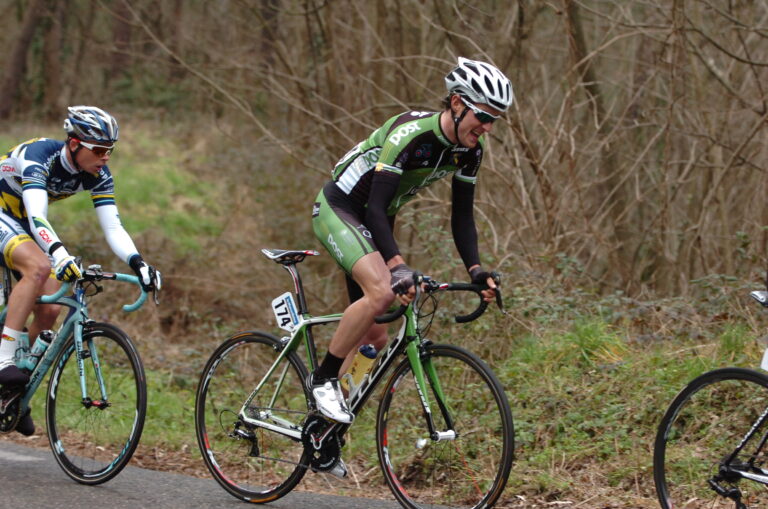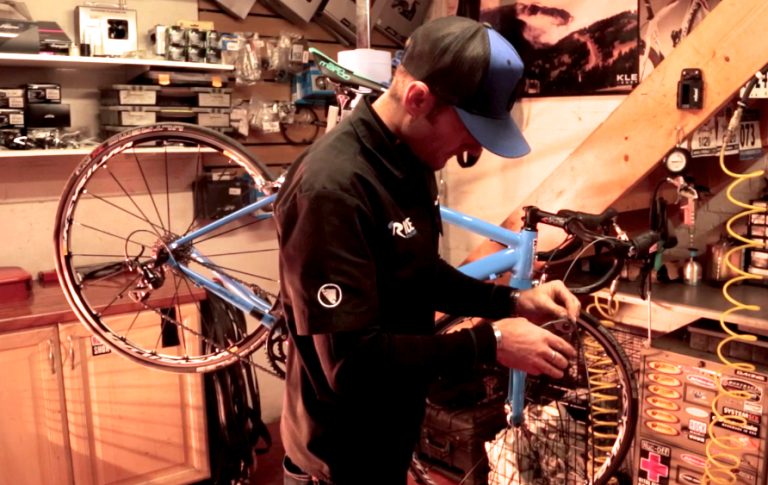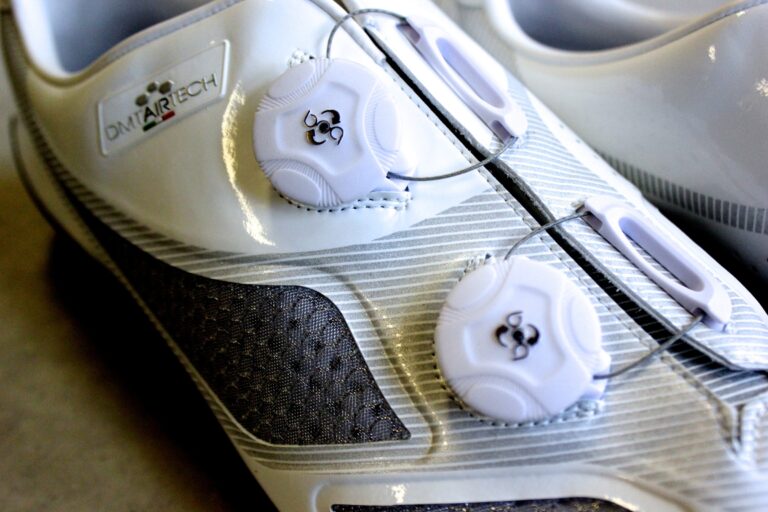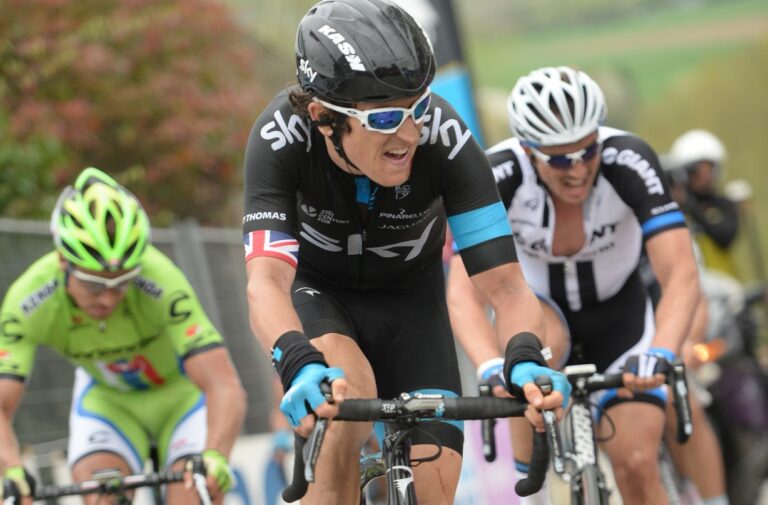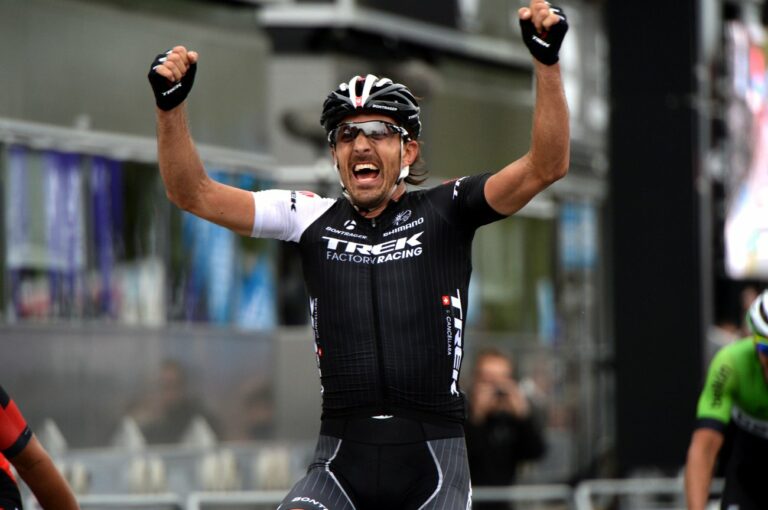A chance meeting with Madison Genesis manager, Roger Hammond, in a hallway at the giant Milton Keynes premises of the team owner has given Sam Hayes a better job than the one he’d arrived to discuss.
Soigneur last season to the Tour Series-winning (and now-defunct) Team UK Youth squad, Hayes, a likeable 23-year-old who entered the small family of Britain’s top professional cycling teams in 2011 as a sports science undergraduate hoping to rack up “clinical hours”, he had travelled to Madison HQ to be interviewed for an entirely different role. “I left that day with a job,” Hayes laughs, “but not the job that I went to be interviewed for.”
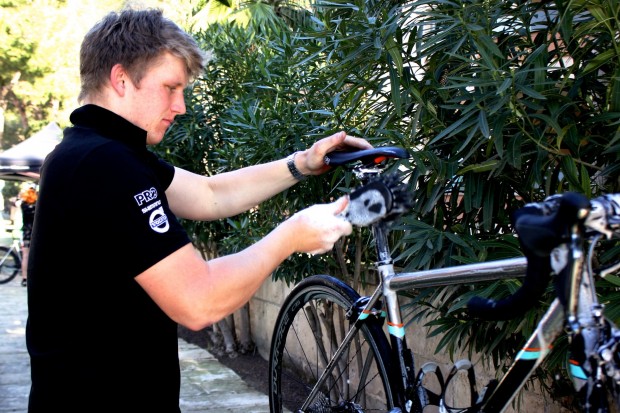
This season, he will work with Hammond’s strengthened team, managing the service course and a fleet of bikes for a squad in which each of the 13 riders has at least two machines and some have three; dispatching replacement parts to riders scattered around the country, and on race day, providing the mechanical support that could see their efforts richly rewarded or brought to nought. “I love it,” Hayes says. “You get to see some beautiful places, and at the end of the day, I’m working for a professional cycling team, and going to professional cycling races. The novelty’s not worn off yet.”
Service de Courses
The chance meeting described above has seen Hayes take up employment with Madison Genesis as service course manager and head mechanic, a role demanding an aptitude for logistics and a practical bent. He has moved to Milton Keynes to be closer to the service course, the hub from which all logistical operations pertaining to vehicles and equipment emanate.
Team player is cliché, but I can drop into any social scene and I’m happy to get on with anyone. If you had too many guys clashing heads, it just wouldn’t be any fun – Sam Hayes
Hayes is responsible for a raft of equipment, including the race bikes of much of the team, which are stored securely at the service course. Each rider has at least two bikes: a race bike, and a training bike. Senior riders have a third bike: a spare to be deployed should the race bike develop an irremediable mid-race problem. The race bikes are the latest, fourth generation of the Genesis Volare Team bike. For new members of the team, the spare and training bikes are version three machines. The riders retained from last year will continue to use the second iteration Volare Team, fitted with a mechanical Shimano Dura-Ace 9000 groupset, as a training bike.
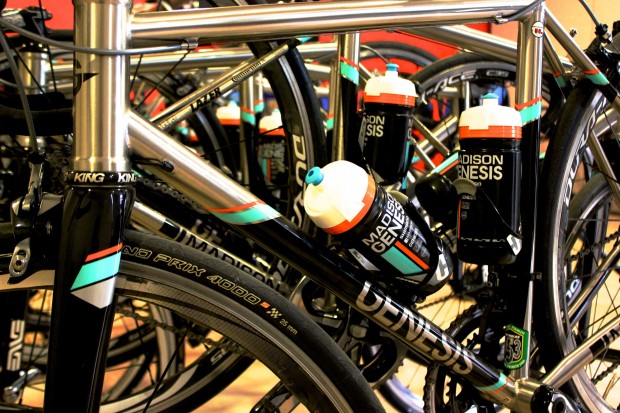
Hayes received the new bikes in mid-February, and began the process of building the machines to the measurements supplied by the riders, spending an entire day on the first bike as he learned the idiosyncrasies of the frame and its various components, and a maximum of two hours on all subsequent machines. Learn how one goes together, he says, and the rest follow “like clockwork”. All of the race bikes have the same specification: the fourth iteration of the Reynolds 953 Volare Team frame, full carbon Enve fork, full Shimano Dura-Ace 9070 Di2 groupset, Dura-Ace C35 carbon-alloy clincher training wheels, and PRO finishing kit: Vibe bars, stem, and seatpost, and a choice of the Falcon, Turnix, Griffon or Condor saddle.
You just get to know the guys. All of the work that we do is so that the riders can perform. When you get to be involved like this, it improves that whole team ethos ten-fold – Sam Hayes
As well as fleet of race bikes, Hayes also looks after the team’s racing wheels: 13 sets of Shimano Dura-Ace C35 tubulars. The supply will be ‘topped up’ with a mixture of deeper section C75 and C50s, and lightweight, shallow C24 tubulars. The team will use tyres from Continental. The wheels used on Mallorca were shod with Grand Prix 4000s in a 25mm profile. Racing duties on the continent will see them replaced with a narrower 23mm rubber, but the broader profile is likely to be retained for “grippier” domestic races, and the Tour Series of city centre criteriums that form such a vital part of the domestic calendar. “In the crits, they tend to go bigger is better,” Hayes says.
On camp
The training camp in Mallorca has provided the 2014 team’s first international engagement. Hayes and soigneur Andy Evans set off from Milton Keynes almost as soon as the team presentation had finished, crossing the English channel through the Eurotunnel, stopping overnight in Reims, and driving through Spain before completing the journey to Mallorca by ferry. Arriving two days later, on the day the riders boarded a flight from Gatwick, the pair had time to “set up shop”, allowing the riders to check in without unnecessary delay and proceed immediately to the business of minutely adjusting their new machines.
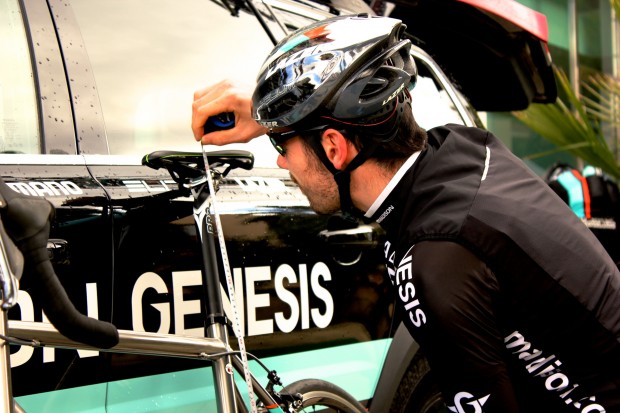
It is perhaps in the professional cyclist’s nature to tinker with the position of the bike’s contact points, despite having supplied his measurements to the mechanic. Riders who spend up to six hours on the bike, and who are required to produce their peak output at any point during that time, are not given to compromise. The Madison Genesis team proved to be no exception, Hayes confirms. “Definitely in the first couple of days, there’s plenty of time spent tweaking the position,” he says. “Bars and lever hoods – how they’re oriented – is very personal.”
I love it. You get to see some beautiful places, and at the end of the day, I’m working for a professional cycling team, and going to professional cycling races. The novelty’s not worn off yet – Sam Hayes
The training camp is a significantly more relaxed environment than a race. Hayes has risen at 8am (“a luxury”) during his time in Mallorca, breakfasted with the riders and headed to the team’s “mini service course” (a small conference room, positioned at the front of the hotel, outside of which the team car is parked) for a final check of the bikes while the riders change for another day in the saddle.
The team that rides together…
Hayes rides out with the team most days of the training camp, battling on gamely when the road rises and the team disappears into the distance. The experience, he says, is of universal benefit. “You just get to know the guys. You like to think that when somebody like Ian Bibby wins a Premier Calendar, it’s Bibby and the rest of the riders, and the background staff: it’s Roger, it’s Andy, it’s me. All of the work that we do is so that the riders can perform. When you get to be involved like this, it improves that whole team ethos ten-fold.”
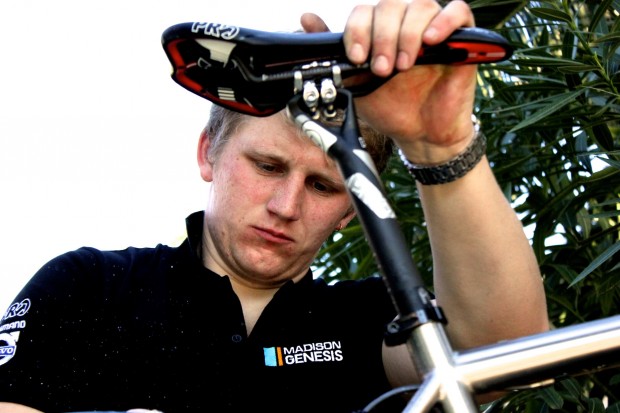
The riders will depend on Hayes in the months ahead, not only in races, when the alacrity of his response from the team car with a new wheel or spare bike might be the margin between victory and defeat, but also in the longer periods between races, when he will attempt to meet calls to the service course with the swift despatch of replacement parts for those perhaps damaged in a training ride crash. Hayes will expect to be kept informed about minor changes made by the rider to the position of his training bike, so that he can replicate the position on the machine on which he will race.
The mechanic’s life isn’t for everyone, but for Hayes, recently turned 23 and with no dependents, it is an occupation without flaw. There are many qualities demanded by a role that places responsibility on an individual to supply and maintain the mechanical equipment on which a professional cycling team will depend, but perhaps the most important consideratoin is personality, rather than a particular skill. Hayes agrees. “You spend so much time together, that if you don’t get on with each other, it’s not going to work.”
“I pride myself on being…” He searches for the right phrase. “Team player is cliché, but I can drop into any social scene and I’m happy to get on with anyone. If you had too many guys clashing heads it just wouldn’t be any fun. I’m super laid back and easy going. I’m happy for anything to be honest – whatever is good for the group as a whole.” Such a team-oriented persona should pay dividends in the months ahead when the riders legs and equipment are tested to the limit.

